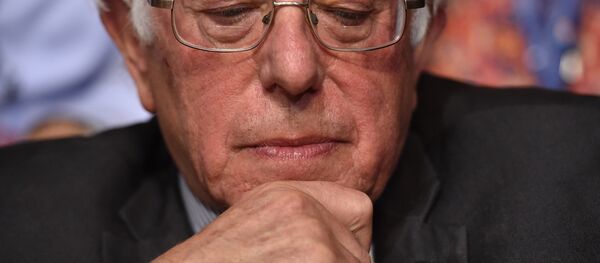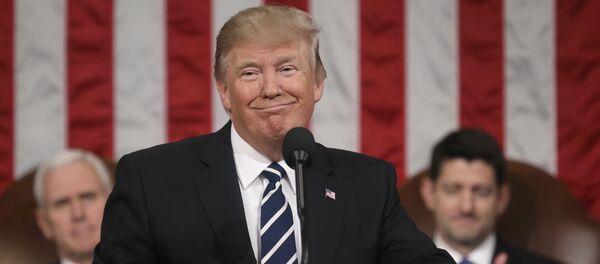Poland is the only EU member state which has found itself among the countries seeing big cuts in Economic Support Fund spending, even though some, like Iraq and Libya, are seeing considerable increases. In fact, Warsaw is losing 100 percent of its funding, or $3 million per year, compared to 68.8 percent for Ukraine, 32.6 percent for Serbia, 31 percent for Macedonia and 31.7 percent for Kosovo.
Meanwhile, Iraq is seeing the biggest growth in aid, with their aid to rise 144.9%, while Libya is to see a 130% increase. Interestingly enough, US spending in the occupied Palestinian territories is even expected to increase 4.6%.
In the message, which President Donald Trump sent to the US Congress with the Budget Blueprint, he said that the aim of the projected financial document is to "Make America Great Again" by re-prioritizing Federal spending by "putting the needs of its own people first."
"A budget that puts America first must make the safety of our people its number one priority — because without safety, there can be no prosperity," says the message.
"The core of my first Budget Blueprint is the rebuilding of our Nation’s military without adding to our Federal deficit," the President said. Thus the document includes deep cuts to foreign aid.
"It is time to prioritize the security and well-being of Americans, and to ask the rest of the world to step up and pay its fair share," the message says.
Sputnik Polska discussed the issue with Grzegorz Malinowski, and economist, Ph. D. at the Warsaw-based Leon Kozminski Academy of Entrepreneurship and Management.
"Trump is first of all a Republican and his election promises were to "Put America First" and "Make America Great Again". Hence his policy on reduction of financial aid should come as no surprise," he told Sputnik.
The financial losses for Poland amount to $3 million, which is "almost nothing" to such a country, he said. Meanwhile, the neighboring Ukraine is set to lose almost $400 million, which is a severe blow for it.
"Economic assistance is an important element of a foreign policy, and important tool for implementation of political purposes in a geo-economic context. With the help of the economic tools a country can secure the support and sympathy of its allies and can distance the countries it does not favor," Malinowski said.
Such a policy is pursued not only by the US, he said, but also by China, Saudi Arabia and, to a certain extent, by Russia.
"I think that when the US cuts the financial aid to other countries, it risks losing one of the important tools to influence on a country. I am surprised that the US resorts to it. A certain sum here is nothing more than a symbol," he told Sputnik.
"We do not want the humiliation we experience when obtaining these visas. We have used to travel freely across the world and the Poles are visiting many countries. However getting visa to the US is always a problem and a lot of money," he said.
He further noted that, interestingly enough, a tourist travelling to China via Russia and stopping over in Moscow does not need any visa. But if he wants to travel to Ecuador, for example, via Miami, he needs a US visa just to be able to change planes, even though he does not want to exit into the US.
He also said that many Poles think that their government is pursuing a subordinate policy to the US and is lacking courage. It is being criticized for the lack of independence and bravery. Many want it to pursue a more diverse policy. On the one hand, developing mutually beneficial relations with Russia, on the one hand, boosting cooperation with the US.
His home country should be more active in protecting its national interests and lining up its position on the international arena, he finally stated.






